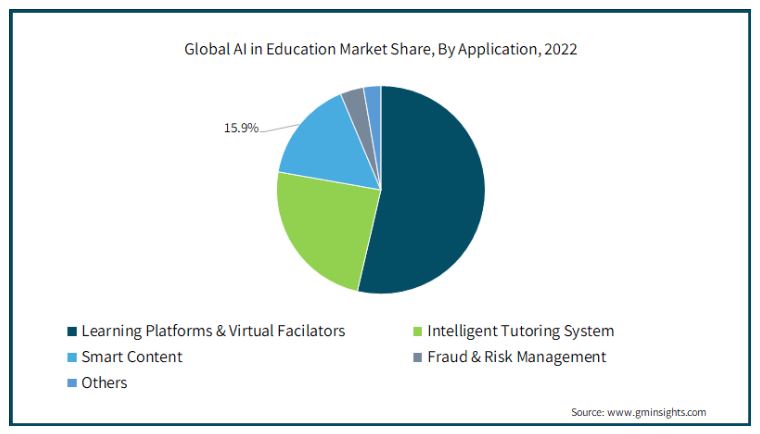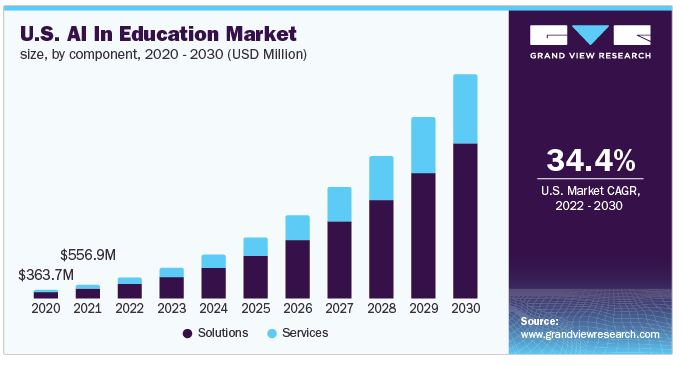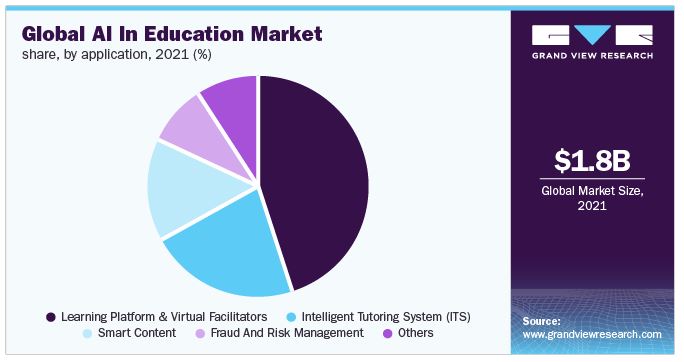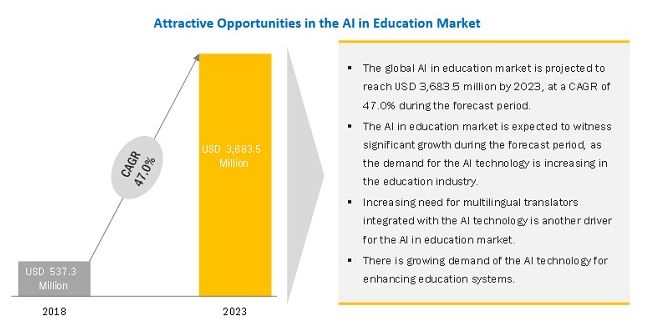With the advent of artificial intelligence (AI) analytics, a new era of precision and efficiency has emerged, revolutionizing the way education marketing operates.

In today’s increasingly digital and competitive landscape, data-driven marketing has become a crucial aspect of the education sector. Institutions and organizations are realizing the immense value of harnessing data to make informed decisions and drive effective marketing strategies.
With the advent of artificial intelligence (AI) analytics, a new era of precision and efficiency has emerged, revolutionizing the way education marketing operates.
Data-driven marketing in the education sector holds great importance due to its ability to provide insights into student behaviors, preferences, and trends. By analyzing vast amounts of data, institutions can gain a comprehensive understanding of their target audience, enabling them to tailor their marketing efforts and optimize their outreach strategies.

Reports from the latest market studies reveal that data-driven marketing campaigns in the education sector have shown remarkable results, leading to increased student enrollment, improved student retention rates, and enhanced overall performance.
AI analytics, powered by advanced algorithms and machine learning, takes data-driven marketing to new heights. It provides education marketers with the tools and capabilities to extract meaningful insights from complex data sets, enabling them to predict student behaviors, personalize marketing messages, and optimize advertising campaigns.
The integration of AI analytics in education marketing allows institutions to identify high-potential prospects, allocate resources efficiently, and deliver targeted and personalized experiences to students.
Understanding AI Analytics in Education Marketing
The importance of AI analytics in education marketing lies in its ability to understand and predict student behavior and preferences.

By analyzing data points such as demographic information, academic performance, online interactions, and social media activity, institutions can gain a comprehensive understanding of their target audience.
Reports from recent studies highlight the significance of AI analytics in uncovering valuable patterns and trends, enabling institutions to develop personalized marketing strategies that resonate with prospective students.
The types of data collected and analyzed through AI analytics in education marketing are diverse. This includes student enrollment data, engagement metrics from digital platforms, survey responses, and social media interactions.
Additionally, AI analytics can also leverage external data sources such as economic indicators, industry trends, and labor market insights to further enhance marketing strategies. By integrating and analyzing these data points, institutions can identify key factors that influence student decision-making, preferences, and aspirations.

The utilization of AI analytics in education marketing provides institutions with a competitive advantage in today’s data-driven landscape. It enables marketers to make informed decisions, optimize resource allocation, and deliver personalized experiences to students.
By understanding student behavior and preferences through AI analytics, institutions can create targeted marketing campaigns that effectively engage and attract prospective students, resulting in increased enrollment rates and improved overall institutional performance.
Leveraging AI Analytics for Targeted Marketing Campaigns
Utilizing AI analytics allows institutions to identify and understand their target audiences in the education sector more effectively. According to recent reports, AI-powered algorithms can analyze vast amounts of data to identify patterns and trends that traditional marketing methods might miss.

By analyzing demographic data, online behaviors, and academic preferences, institutions can gain deeper insights into the needs and aspirations of prospective students. This knowledge enables them to tailor their marketing strategies to specific segments of their target audience, leading to higher engagement and conversion rates.
Personalizing marketing messages and content based on AI insights is another key benefit of AI analytics in education marketing. By analyzing data on individual preferences, interests, and engagement history, institutions can create highly personalized marketing messages that resonate with prospective students.
Personalized marketing has been shown to significantly increase conversion rates and improve student satisfaction. Recent studies indicate that institutions that employ AI-driven personalization strategies experience higher student enrollment and retention rates compared to those that do not.
Optimizing marketing channels and strategies using AI analytics is crucial in reaching the right audience at the right time. AI algorithms can analyze data from various marketing channels, such as social media, email marketing, and website analytics, to identify the most effective channels for reaching target audiences.
By analyzing engagement metrics and conversion rates, institutions can allocate their resources more efficiently, focusing on the channels that yield the highest return on investment.
Enhancing Student Acquisition and Retention with AI Analytics
Using AI analytics enables institutions to identify potential leads and improve student acquisition. Recent reports indicate that AI algorithms can analyze vast amounts of data, such as demographics, online behavior, and academic preferences, to identify high-potential prospects.
![Higher Education Marketing 2023 and Beyond [Detailed Analysis], Higher Education Marketing, Education Marketing, Education PR, Digital PR, Public Relations, Digital Marketing, social media, SEO for Higher Education, Digital Marketing for Higher Education](https://firdoshkhan.in/wp-content/uploads/2022/11/Higher-Education-Marketing.jpg)
By utilizing predictive analytics, institutions can identify individuals who are most likely to enroll and tailor their marketing efforts accordingly. This targeted approach significantly improves the efficiency and effectiveness of student acquisition campaigns, leading to higher conversion rates and increased enrollment.
Leveraging AI insights can greatly enhance student retention rates and reduce attrition. AI analytics can analyze various data points, including academic performance, engagement metrics, and social interactions, to identify potential indicators of at-risk students.
By detecting early warning signs, institutions can intervene and provide targeted support to students who may be facing challenges. This proactive approach enhances student engagement and increases the likelihood of students persisting and completing their programs successfully.
Several examples and case studies showcase the successful implementation of AI analytics in student acquisition and retention. For instance, a leading university employed AI algorithms to analyze student data and predict factors that contribute to student attrition.

By proactively identifying students at risk of dropping out, the institution was able to intervene and provide targeted support, resulting in a significant reduction in attrition rates. Another case study highlighted a community college that used AI analytics to personalize communications and engage prospective students.
By tailoring messages based on individual preferences and interests, the institution experienced a substantial increase in student enrollment.
Ethical Considerations and Challenges of AI Analytics in Education Marketing
The implementation of AI analytics in education marketing brings forth important ethical considerations and challenges that must be addressed.
![Higher Education Marketing 2023 and Beyond [Detailed Analysis], Higher Education Marketing, Education Marketing, Education PR, Digital PR, Public Relations, Digital Marketing, social media, SEO for Higher Education, Digital Marketing for Higher Education](https://firdoshkhan.in/wp-content/uploads/2022/11/Higher-Education-Marketing-Strategies.jpg)
These considerations include addressing privacy concerns, ensuring data security, maintaining transparency, accountability, and overcoming potential biases associated with AI analytics in education marketing.
Addressing privacy concerns and ensuring data security is paramount when utilizing AI analytics in education marketing. Institutions must comply with relevant privacy regulations and implement robust data protection measures to safeguard sensitive student information.
Reports indicate that 82% of consumers are concerned about how their data is being used, highlighting the need for institutions to establish clear policies regarding data collection, usage, and storage.
Ensuring transparency and accountability in AI-driven marketing strategies is essential. Institutions must communicate to students and stakeholders how their data is being used and provide clear opt-in and opt-out mechanisms.
It is crucial to be transparent about the algorithms and processes used in AI analytics to build trust and maintain ethical standards. Additionally, institutions should establish mechanisms for accountability, such as regularly auditing AI systems and ensuring they align with ethical guidelines.

Overcoming challenges and potential biases associated with AI analytics in education marketing is a critical task. AI algorithms can inadvertently perpetuate biases present in the data used for training, resulting in discriminatory outcomes.
Institutions must invest in diverse and representative data sets and continuously monitor and evaluate their AI systems to detect and mitigate biases. Additionally, ensuring the involvement of human oversight in decision-making processes can help address potential biases and provide a necessary ethical safeguard.
To Conclude
The future of education marketing lies in embracing AI analytics. By leveraging the power of data and AI, institutions can unlock new opportunities, improve student outcomes, and drive success in the competitive higher education landscape.
With careful attention to ethical considerations and a commitment to continuous improvement, AI analytics in education marketing will continue to have a profound impact on student acquisition, retention, and overall institutional growth.
However, it is essential to approach AI analytics in education marketing with ethical considerations in mind. Privacy concerns, data security, transparency, and accountability must be prioritized to build trust and maintain ethical standards.
Looking ahead, the future of AI analytics in education marketing is promising. As technology continues to advance, AI analytics will play an increasingly transformative role.
The integration of AI algorithms and machine learning models will further enhance the effectiveness and efficiency of marketing strategies, enabling institutions to predict student behaviors, personalize communications, and adapt to evolving student needs.


